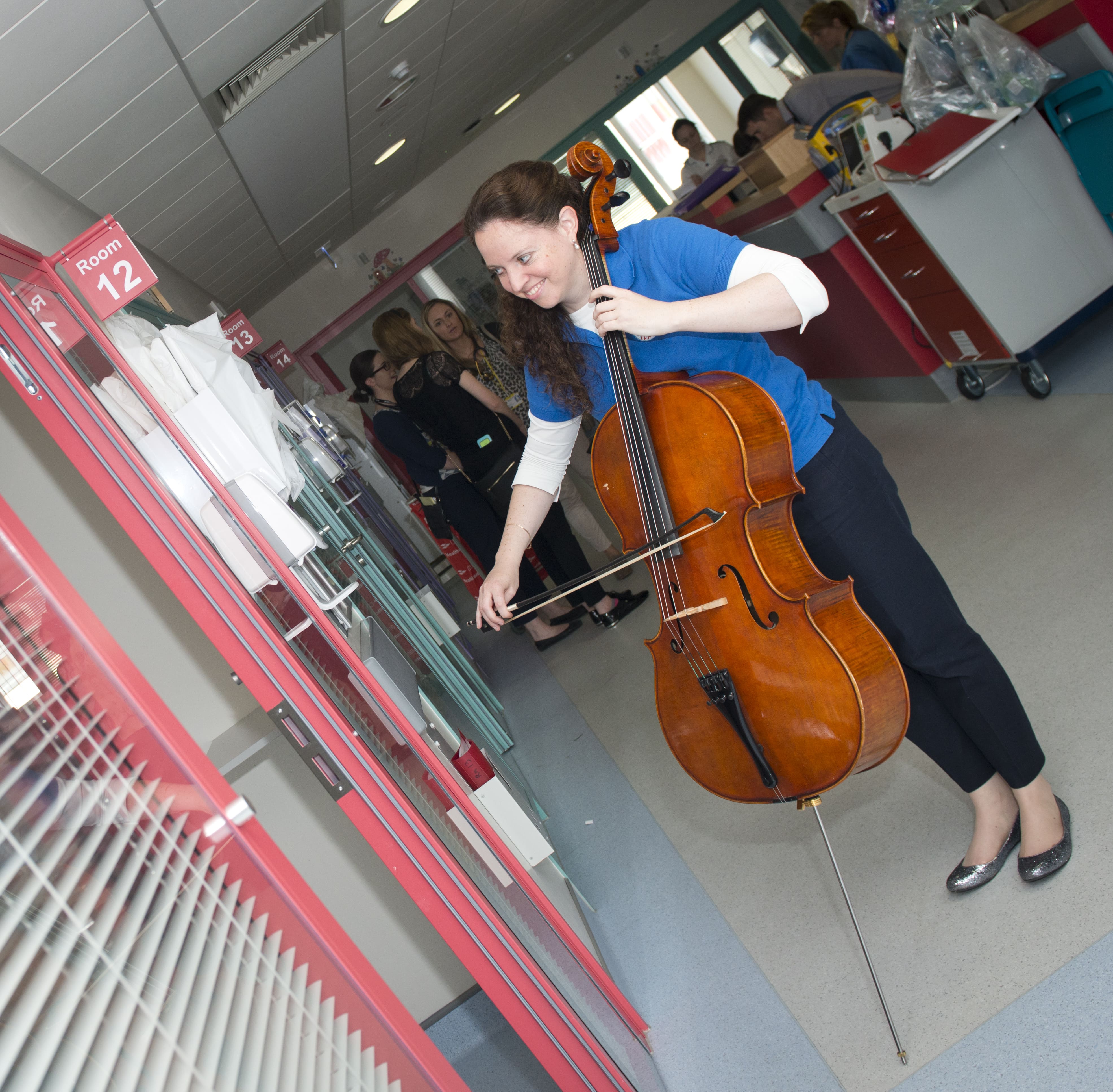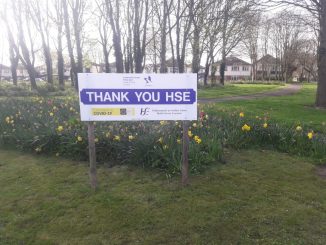
[dropcap]How[/dropcap] do you comfort a child who has received impossible news? Sometimes words are not enough, but music is, according to Gráinne Hope, founder of Kids’ Classics, a non-profit organisation which brings professional music into hospitals and local communities, in partnership with the National Concert Hall.
Gráinne recalls one teenage patient she met in cancer treatment who was keen to meet the musicians, even though they were scheduled for an important test that day.
When they arrived to the ward the musicians were told that the patient had received difficult news, but that they still wanted them to visit.
The teenager had received news that they would start a new drug trial the following day and as a result plans to attend a St. Patrick’s Day parade, with VIP treatment would have to be postponed.
“They knew what that meant, we knew what that meant, so as we walked into the room everyone understood,” Hope said. “I love the Hans Christian Andersen saying, ‘where words fail, music speaks’, and what could you say? There were no words to say other than to play music and drumming was their thing, being a drummer in a rock band outside of hospital.”
“They did this brilliant little riff and I asked could I capture that in a recording on my phone,” she said. “I was listening to it recently and noticed a little giggle at the end of it, I think we all landed on a different chord, it is a lovely memory to have.”
“Tragically they have since passed away. When I look back now, that musical interaction was like gold dust to me, where music was so important in that teen’s life,” Hope said.
“Someone at sixteen knows the gravity of a treatment trial that they are about to start and they still wanted music. You can’t say no to that. For me, I would play music with this teen over performing on a concert stage because you just see what it means to then and family.”
The idea for Kids Classics began in 2008 when Gráinne was studying for her Masters in America; she participated in a community performance at a local hospital.
She brought the idea to Ireland with her, hoping for a couple of weeks of funding. Kids’ Classics now approaches its tenth birthday and is officially a non-profit organisation.
The six person team consists of two classical players, including Gráinne who is a cellist and a flautist, two traditional Irish players, playing Uilleann pipes, whistle, mandolin and banjo, and two folk singer/songwriters.
Hope says for many families, a visit from Kids’ Classics is an escape from a ward, like “a walk outside in your head when you can’t leave your child”.
She recalls one family who had a small child in long term care, and three other little siblings who watched one of their hospital performances.
“The mum said to me after, that’s the first time we’ve ever done anything as a family. The younger child had always been in hospitals since they were born. It hit me what some people take for granted, going to a panto at christmas or going to the cinema as a family.”
“I just thought, wow, if we can do this, the meaning that this visit has to a family, isn’t it amazing,” she said.
Kids’ Classics run several community programs; Musical Memories in nursing homes, Twinkle Twinkle Little Ears for maternity hospitals, and Medical Notes in general hospitals.
“When we play Twinkle Twinkle in a ward, we can often play it ten times. But for every child, when you play it at their door, in their room, it’s for them and that’s what makes it special,” Hope said.
“At the other end of the spectrum of music programmes we deliver, we visit Nursing Homes, connecting through songs of the older generations. To see somebody living with dementia who is beside their family and might not know their daughter or their son’s name, but all of a sudden can sing a verse or all the verses of a song word perfect from beginning to end, is something special.”
“I remember a Director of Nursing once saying that live music can help give a voice to a child in a situation where they feel have very little control of their environment. If they decide to say no to music, that it’s okay and can be very empowering for that person.
“It’s funny because you see a child say no I don’t want it and more than soon after they’re down following us around the ward, but for that minute they got to control their situation. It’s lovely when I see that happen because music can help them have their voice,” says Hope.
Fionnuala Walsh



